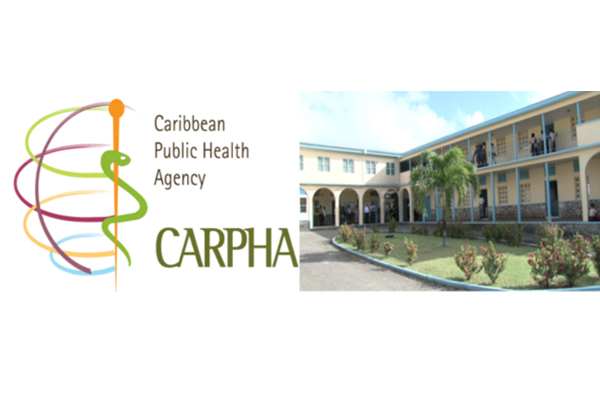CARPHA makes recommendations on BHS
Basseterre, St. Kitts (SKNIS) — The Caribbean Public Health Agency (CARPHA) has completed its preliminary assessment of the Basseterre High School (BHS) and has made a number of environmental, maintenance and health recommendations which will be submitted in a draft report on 12 May, 2014.
The CARPHA team, Dr. Babatunde Olowokure and Lesmond Magloire spent three days meeting with all key stakeholders including parents and teachers, President of the Parent teachers Association as well as a representative of the Teachers Union. They also took samples and toured the entire BHS campus.
Dr. Babatunde Olowokure, Team Leader of the CARPHA mission said that “we have identified a number of environmental and health issues associated with Basseterre High School during this initial preliminary assessment, and made recommendations to the national authorities. We will analyze our findings in more detail, including the results of our laboratory tests, and take other information into consideration, such as the CARIRI reports.”
CARPHA will issue a final report towards the end of May once they have received final test results and drawn on the findings in the final report from CARIRI. While the CARIRI report will address areas that have been identified as ‘hotspots’ such as the laboratories, CARPHA will be looking at the school and its surrounding environment in its entirety. CARPHA also intends to return to BHS to review the remedial work before recommending that the school be reopened.
Both the Ministry of Health and the Ministry of Education have welcomed this as the best course of action to ensure the health and well being of pupils and teachers.
Health Minister the Hon. Marcella Liburd said that “after two CARIRI visits and several tests and inspections from local experts the staff and students of the BHS continue to be in uncertainty as to the cause of the health problems that they continue to endure. CARPHA will work with the other specialist agencies to find the solutions we need looking at the entire environment of the school. It is clear that there are a number of issues at Basseterre High and we will continue to work with the specialists and the school authorities to ensure that all recommendations are implemented as speedily as possible.”
CARPHA’s recommendations, which were based on their preliminary findings, include:
- The development and implementation of an environmental management programme which should include regular scheduled maintenance and cleaning of the school environment,
- Increased frequency of removal of solid waste material from the school;
- Implementation of a pest control strategy;
- Training of auxiliary staff to ensure a clean school environment;
- Servicing of air conditioners on a quarterly basis;
- Implementation of a liquid waste management programme which should include review of the entire septic system and a test to identify if there are any leakages in the system;
- Laboratories need to be opened to allow for proper ventilation;
- When the school is reopened a full time school nurse should be available to actively monitor the situation in the school continuously for at least one year;
- Records should be kept of any and all health complaints and should be reviewed on a monthly basis, or earlier as appropriate;
- Ministry of Health and Education should develop a communication strategy and should be proactive in their communications with parents, media and other key stakeholders, and information should be provided to all stakeholders simultaneously.
Recommendations for any further action will be dependent upon the results obtained from laboratory tests.
CARPHA will return to review the remediation work carried out to ensure that all recommended work has been completed prior to any proposed reopening of the school.
The final report is expected on May 26, 2014 provided that the laboratory results are received in time.
CARPHA is a new single regional public health agency for the Caribbean. It was officially established in July 2011 by an Inter-Governmental Agreement signed by Caribbean Community Member States and began operation in January 2013. The Agency rationalises public health arrangements in the Region by combining the functions of five Caribbean Regional Health Institutes (RHIs) into a single agency. They are the Caribbean Environmental Health Institute (CEHI), Caribbean Epidemiology Centre (CAREC), the Caribbean Food and Nutrition Institute (CFNI), Caribbean Health Research Council (CHRC) and the Caribbean Regional Drug Testing Laboratory (CRDTL).

